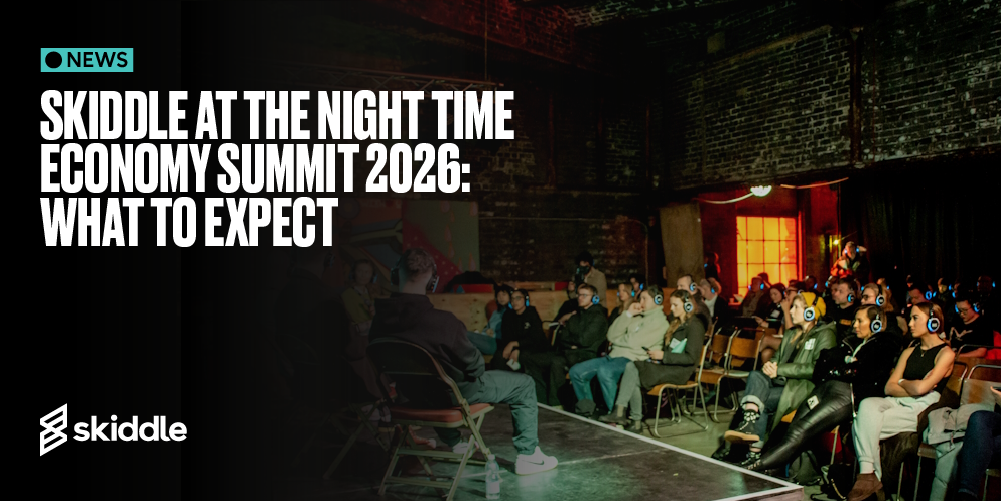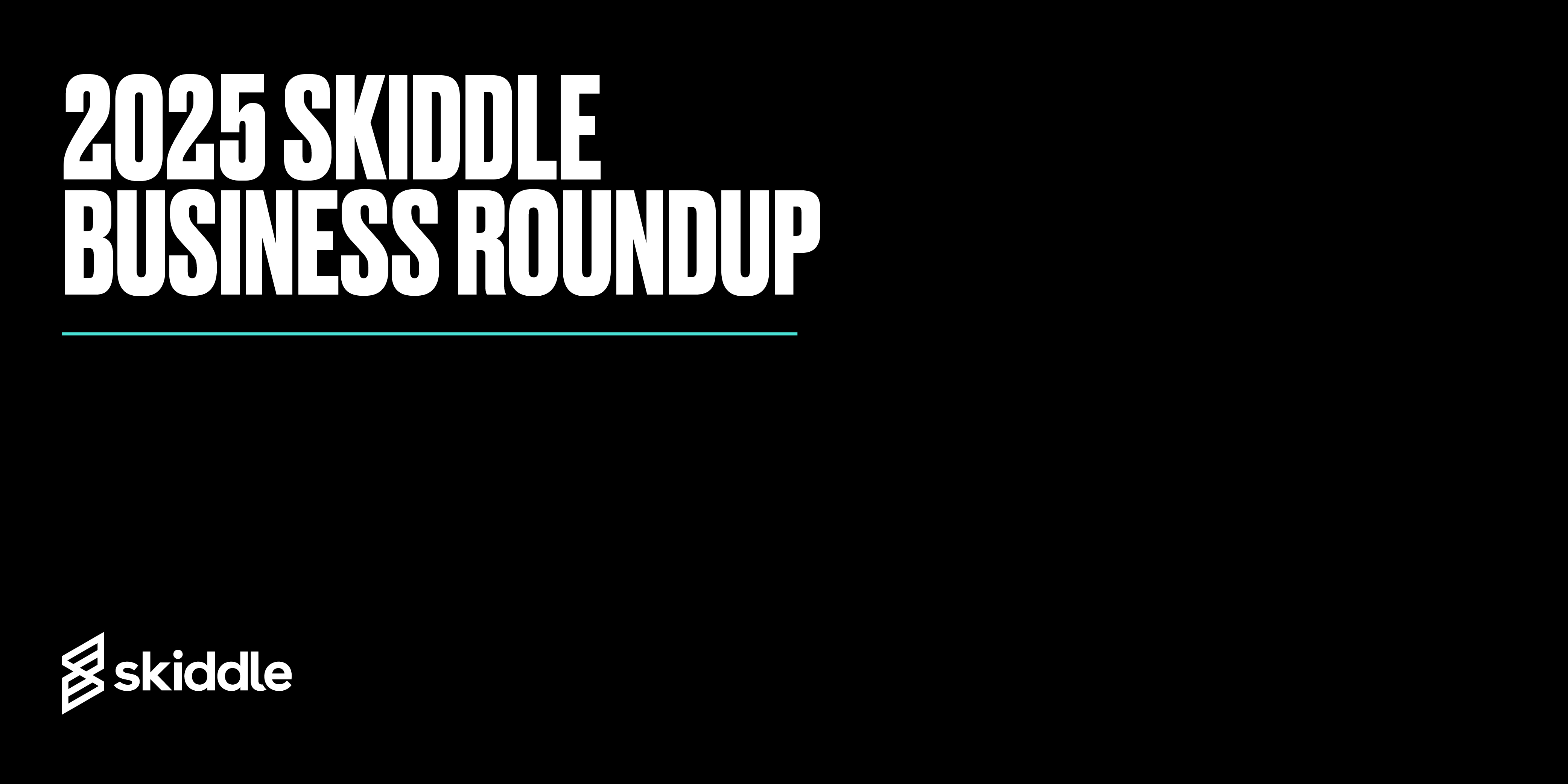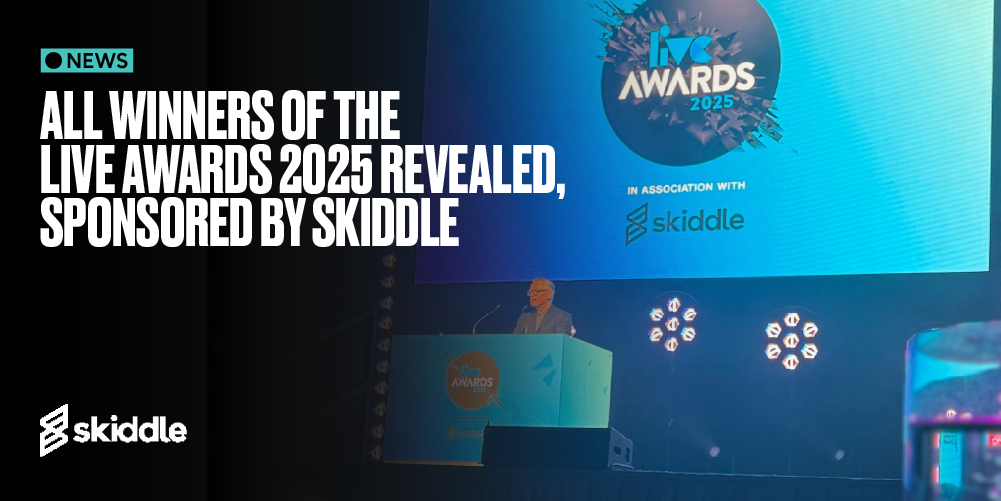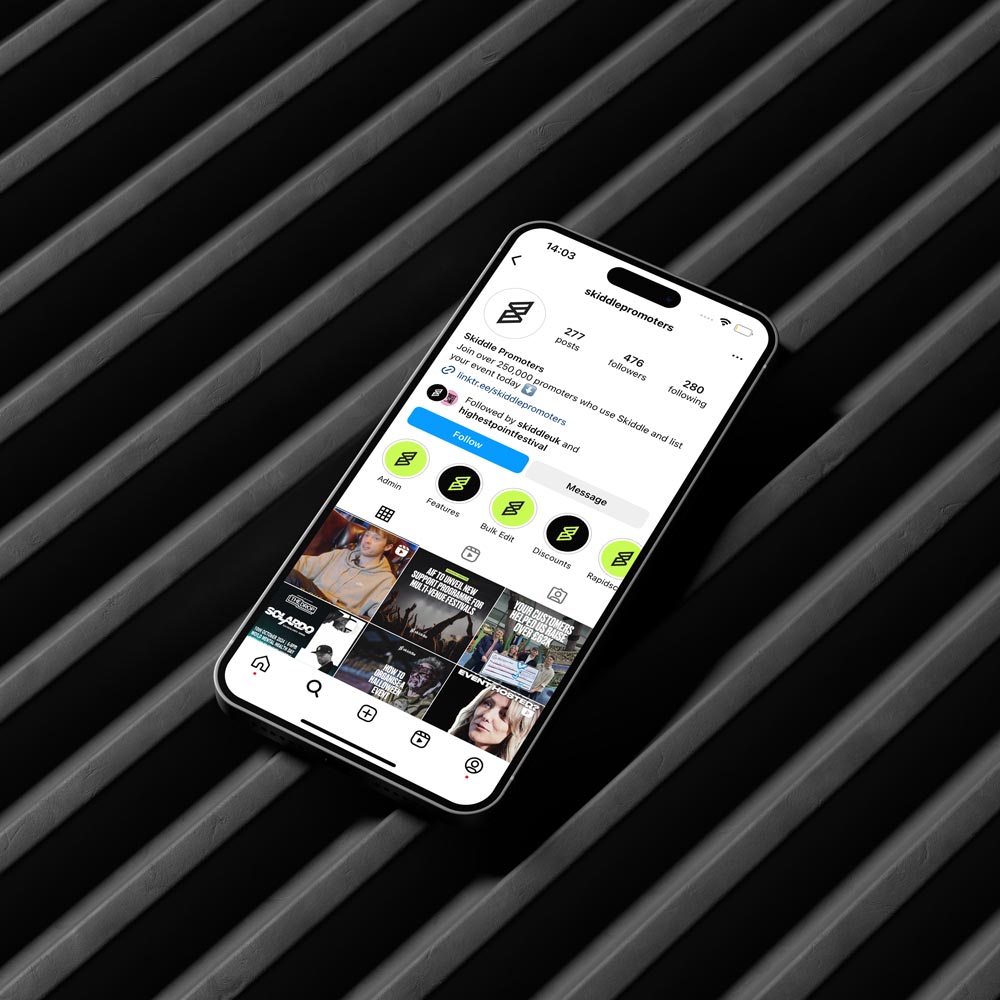- Behind the Scenes
Mental Health Report: Use These Findings to Shape a Healthier Work Culture
-
By Ryan Moss
- 30 May 2025
- 10 min read
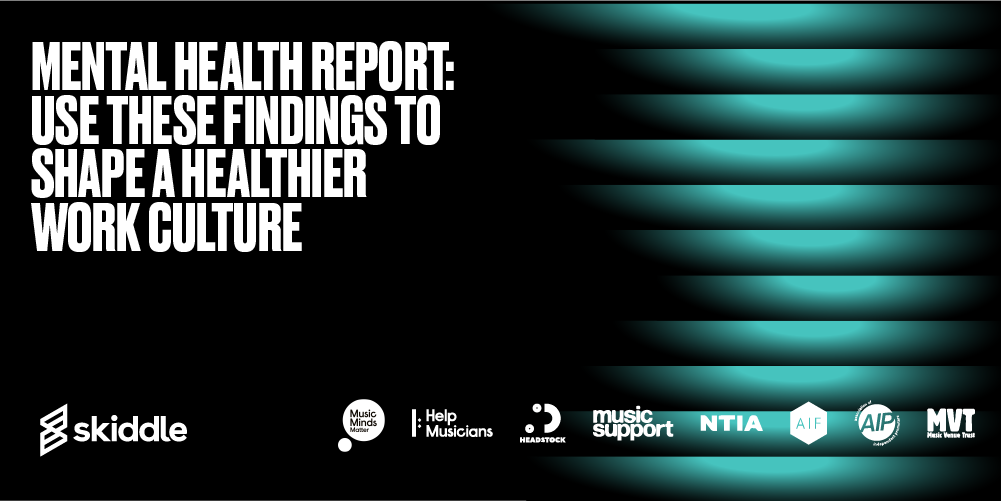
When the workplace culture is positive, you can feel it. Staff might be powering through a demanding festival launch schedule, but the shared jokes are still flowing.
It’s the ideal scenario for all event industry workplaces. However, as we found in our year-long mental health survey, which launched at the beginning of Mental Health Awareness Week, the picture doesn’t always look pretty. The passionate, humorous souls that make up our world are struggling. But we believe that by working together as an industry, we can help those in need.
As our Head of Festivals and Partnerships, Duncan King, put it:
“Supporting mental wellbeing isn’t just a priority, it’s a responsibility we take seriously as we work to build a more compassionate, sustainable future for the live events industry.”
After all, we work with more independent promoters and venues than any other ticketing platform in the UK. We’re not a nameless, faceless company. We’re working alongside our peers in the industry, and we want to give back.
So, we’ve dug into the data, drawn on our own experiences, and leaned on a few of our brilliant partners – Music Minds Matter, Headstock, and Music Support – to create a practical guide for using our findings to shape a healthier working culture.
Finding: 48% Don’t Know Where to Access Support
Mental health support is vital. It helps us to let go of painful feelings, build resiliency and create a roadmap for our lives. But with 48% of survey respondents telling us they don’t know where to find support, what can we do?
Next Steps: Music Minds Matter’s Support Line
Sometimes, the first call is the most important. It can feel like opening a door, letting all of the fresh air in and stepping out into the world with a renewed sense of vigour. That’s why it’s crucial that we look to services like Music Minds Matter, which provide a free, confidential helpline – 0808 802 8008 – that staff can call and make that initial contact.
Callers can speak to a trained counsellor, who’ll listen and offer further support if it’s felt like that would be of benefit. Get in touch with Music Minds Matter and place their posters with the helpline around key areas where your staff work. This way, staff know it’s there and if they want, they can go ahead and call.
When your team needs support, extend a hand and be there for them. You never know who might need it.
View this post on Instagram
Finding: Exercise Is a Popular Form of Self-Care
While event staff struggle to find support, it’s encouraging to see that almost two-thirds (61%) of respondents to our survey chose exercise as a form of self-care. Exercise can make the world feel a little less heavy, provide us with personal goals to work on and build self-confidence. Here’s how to introduce it into the workplace.
Next Steps: Supplement and Introduce
The key here is emphasising the team aspect of exercise and finding something accessible for everyone’s activity level.
Hiking is a fantastic example.
It’s a low-intensity form of exercise, can facilitate conversation and can open up your team to the beauty of the British countryside. Plus, for those who aren’t regular hikers, it can introduce them to a new form of exercise.
For those who exercise regularly, it’s a supplement to their regular physical activity, and maybe a change of pace from high-intensity workouts.
If you’re a team leader, plant the seeds. Have some keen runners? Start a club. The football-obsessed marketing lot? Encourage them to set up an office team and enter into the local 5-a-side league.
You’ll create an environment where your team are looking after themselves, trying new things and moving around. That’s a fantastic way of helping people stay active.
View this post on Instagram
Finding: 74% Have Experienced Poor Mental Health
For the events industry, poor mental health is unfortunately the norm. And that lines up with wider statistics, too. For example, a 2024 study carried out by Champion Health found that 79% of employees are experiencing moderate-to-high stress levels, with younger employees (16-24) and women showing the highest stress levels.
So, what can we do? For us, it comes down to two aspects: urgent and professional support. Let’s take a look in the next section.
Next Steps: Urgent & Professional Support
When crisis beckons and everything feels as though it’s getting on top of us, an intervention can offer a sense of stability, like the strong foundations that protect a home from falling in.
For urgent support, point staff to lifelines like MUSIC 85258, an initiative set up by Manchester-based social enterprise Headstock and text messaging support service, Shout.
Those in need can text ‘MUSIC’ to 85258, and they’ll receive free, confidential support right there in the moment from Shout’s team of highly trained volunteers.
For targeted, longer-term support, Music Minds Matter has a free, clinical mental health assessment service which helps event staff find the right care for their needs.
It’s delivered by the British Association for Performing Arts Medicine (BAPAM). A qualified mental health practitioner will review the assessment, and staff will be signposted to a Music Minds Matter-supported service, guidance to access the right care from the NHS or another provider or therapeutic support.
You can self-refer at any time by calling BAPAM on 020 8167 4775 or emailing info@bapam.org.uk
View this post on Instagram
Finding: 37% Have Suffered Problematic Substance Issues
Complacency isn’t an option when it comes to substance issues. While 46% of respondents disagreed with the statement ‘The stress of my work has caused problematic substance issues’, 37% agreed.
Thankfully, there are ways we can help. Let’s take a look at them in the next section.
Next Steps: Reduce Stigma, Make Support Clear
Substance use, like depression, anxiety and OCD, is a mental health condition. For those who suffer, it’s a lifelong condition to which they have to continuously adapt.
So, be mindful of what people are going through. The team member who opts for alcohol-free at the Christmas party? That might be their way of coping. Respect and non-judgment help to create a supportive environment.
Then, make the support lines clear. A great place to start is Music Support’s confidential helpline – 0800 030 6789. If staff come to you and disclose what’s happening, point them here first.
But, like the other help resources, don’t be afraid to share them around offices, green rooms, staff rooms or festival control rooms. It keeps the information front of mind without pushing it too hard. When staff are ready, they know where to go.
View this post on Instagram
Finding: 42% of Staff Made Positive Relationships In The Industry
Positive working relationships are key to a healthy workplace. So, it was encouraging to find that 42% of staff felt that the industry was a place where they could find friendship, connection and support.
This is something to build on.
Next Steps: Make Connection Easy
One way you could do this? Mentoring. If you’ve got two colleagues who you think could learn from each other, and both are open to it, pair them up as mentors and mentees.
They can bond over shared experiences, learn from each other and foster a working relationship that may have been previously unexpected.
Alongside this, introducing low-pressure social activities can go a long way. So, why not take the team out for an afternoon lunch or go out and play an interactive game in the middle of the work day? It gives staff a break from the daily routine and gives them the option of carrying on into the night amongst themselves.
Speak to your staff, too. Ask what they want to do at the next summer party. It makes for a collaborative environment, which helps foster connection and keeps work relationships prospering.
Tags
Got a question you need an answer to?
Give us a call on 03333010301 or ask us a question over on the Skiddle Promoter Twitter account by clicking or tapping on the button below. Alternatively, you can also find a list of our most frequently asked questions over at https://help.promotioncentre.co.uk



